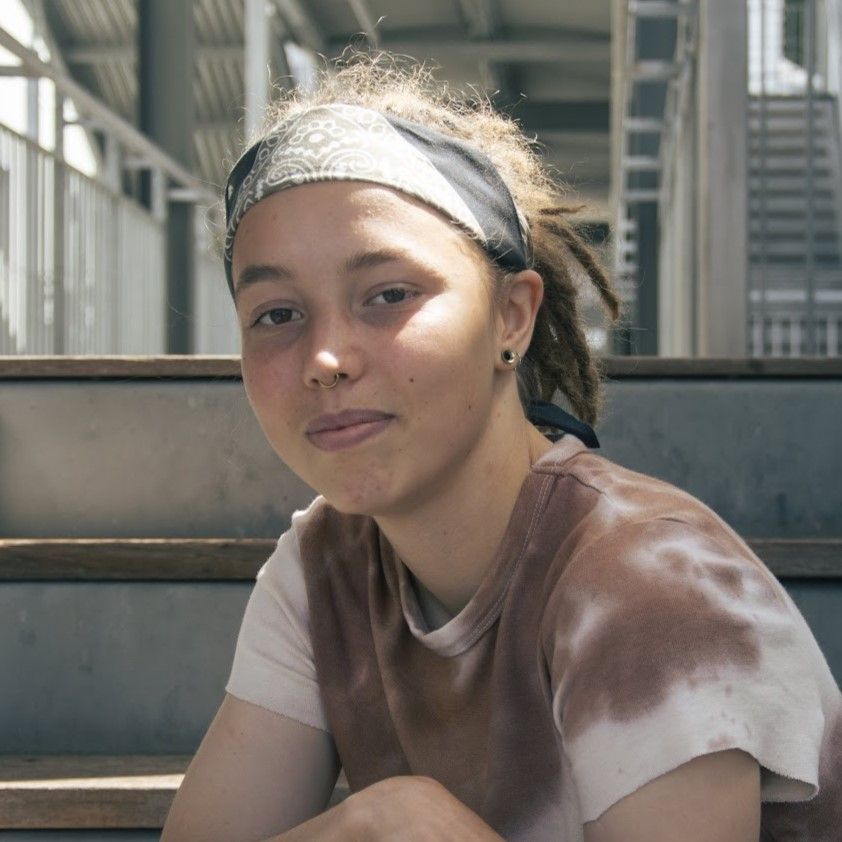
Career Advice: Working as a 3D Modeller in an Animation Studio
Yoobee Alum, Kate Matveenko, gives us insight into starting a career in 3D Animation.
Meet Kate Matveenko, a talented 21-year-old Russian-born 3D artist based in New Zealand. After relocating to pursue her passion for VFX, graduating from Yoobee Colleges, Kate's artistic journey has been filled with growth and determination. With a background in traditional art, she has transitioned into the world of 3D and digital painting. In this article, we explore her experiences, career path, and valuable insights gained along the way.
I am currently working as a 3D Modeler at Flux Animation Studio based in Auckland, New Zealand. My day usually starts with a quick Daily Meeting where we discuss client feedback and plan the next move. My key responsibilities involve creating assets and characters, taking them through texturing and lookdev, and finally receiving feedback and adjusting things if needed.
During high school, I was looking for a career path that aligned with my goals and interests. Traditional art has always been a passion of mine. So, I wanted a job that would let me be creative and artistic, while also earning me a good salary and allowing me to work from anywhere in the world. A 3D Artist met all these criteria.
I started applying for jobs as soon as I graduated from Yoobee Colleges. I knew that getting a job straight out of school is not easy and might take a few months. My strategy was to keep working on personal projects, upskill and enter competitions. In other words to stay committed without putting too much pressure on yourself or setting any rigid timeframes. I was working a part time job and doing some 3D freelance on the side while I was waiting to get a full time position.
It took me about 8 months after graduation to get my first full time job, and it almost happened when I stopped expecting anything. So I would say commitment over results is what got me there.
My first position as a CG Artist was at a company called Soul Machines that makes AI powered digital humans. I was very excited to get started and meet my team.
My first 3 months all consisted of getting trained as a FACS artist and learning the pipeline and internally-developed tools. I was very lucky to have a senior artist assigned to train me, review my work and answer any questions. Right away, I was given a low-priority task, which was a great way to start as it let me learn things by practicing them, while also being able to take my time and get comfortable. Soul Machines was very welcoming and I felt confident about working independently at the end of my training period.
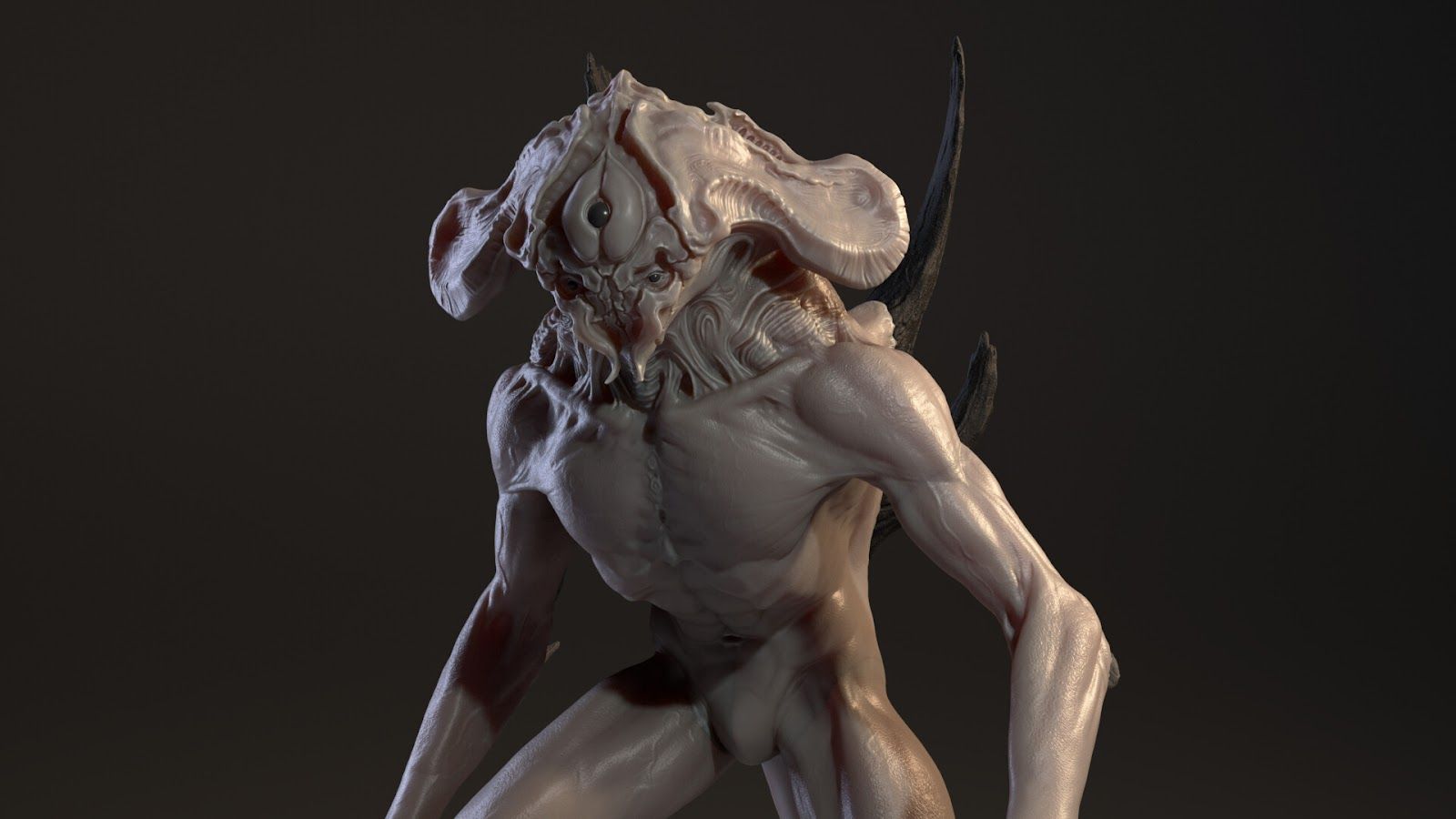
My day always starts with a quick Daily Meeting with the team where we track progress on ongoing projects, review client and internal feedback and plan the next move. If I’m continuing on an old asset or character, I first address the notes that I got and then proceed with other improvements. If I’m starting something new I begin with some planning and collecting reference, sometimes I ask a more experienced colleague for advice on what’s the best way to approach the task at hand.
I also need to check in with a person who comes next after me in the pipeline every once in a while - usually to ask if I’ve accounted for everything to work smoothly further down the line.
I always make an effort to be away from my desk on lunch break - I usually go for a walk in the city or chat to people at the office.
1pm - 6pm is the most productive part of my day. I really get into the flow.
At the end of the day I back up my files and post a progress update to review at Dailies tomorrow.
Most days I am either modeling, sculpting or texturing, sometimes I do some layout and proxy modeling.
We use a task manager to keep track of every ongoing project. It shows the tasks that are assigned to you and their status, what's higher and lower priority. All the notes you receive are uploaded there too and you can tag people if you need to get someone's eyes on your update.
On top of that I like to keep a notebook and write important things down as I’m working. It helps me to keep track of priorities and remember about the small things I might forget otherwise.
I'd say people I interact with the most are other modelers: they can give you both advice on improving a particular asset as well as general advice on how things are done within the studio's pipeline as well as some art direction. Sometimes the workload will be split between several artists so you have to communicate who's doing what.
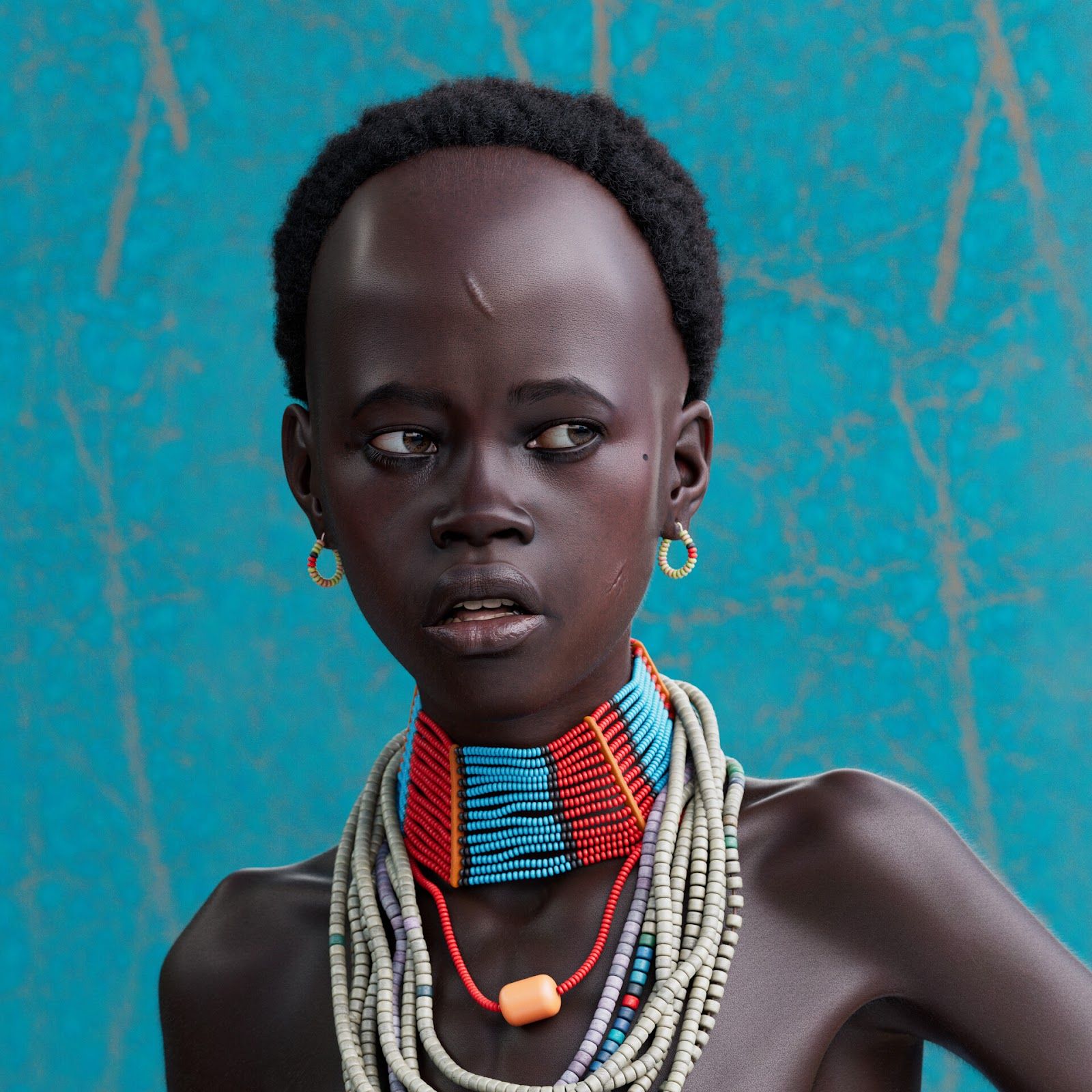
If I'm doing character modeling I need to work closely with the rigger and the groom artist. Those are the people who pick up your asset as soon as a decent base mesh is ready. I have to send model updates regularly. Plus sometimes riggers and groom artists can spot some flaws in your model from their point of view.
There’s a few pieces of software I use on a regular basis. Maya and Zbrush are my go to for modeling and sculpting, Substance 3D Painter and Mari for texturing, Arnold and V-Ray for rendering. I also have to use Photoshop on occasion, and I absolutely love PureRef for creating reference boards.
There are two main things that help me keep upskilling. First off, learning from other people whether it be watching YouTube tutorials, finding project breakdowns on ArtStation, being trained at work or school, or asking for feedback.
I've always found reaching out to other artists a great resource as they're always happy to share their knowledge and it's also a great way to make new connections.
And two - practicing, especially through personal projects. I always have personal projects on the go and I like to tailor them in a way that allows me to practice the skills that I already have while also challenging me in new ways.
As technology is becoming more and more developed, the 3D industry is growing. As a consequence, CG has become affordable not only for high budget feature films but things like commercials, AI, NFTs, Snapchat filters and so on. That creates way more jobs and opportunities to work for new companies all around the world.
I really appreciate the combination of creativity and technicality in my job and I wouldn't want either one of those aspects to be completely taken away by AI or whatever's the next thing to come.
I would love if crunch time became less common in the industry and I think it is particularly important for creative jobs as it's easier to get burnt out.
I keep in touch with the people I've met while studying and working, either in person or online. I love seeing what other people are working on and how they are progressing. The great thing about the VFX industry is that it's very tight and it's easy to reach out to people if you need to. ArtStation is a great resource for seeing what other artists are up to and connecting if you're feeling up to it.
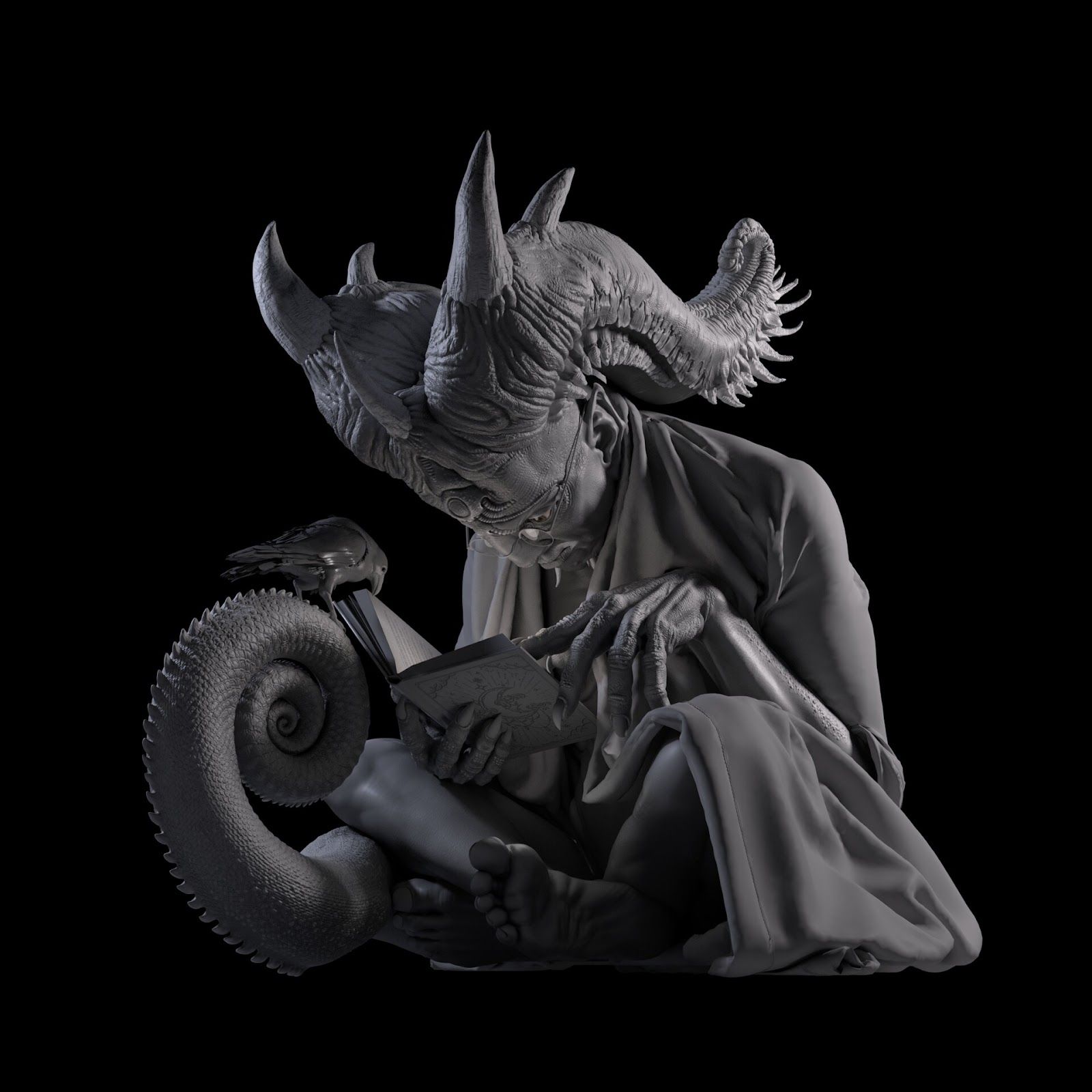
The Rookies: great for seeing what fellow students are up to and taking part in challenges/ competitions.
ArtStation: a portfolio website designed for artists, which is also great for looking at other artists' work, finding inspiration and reference, project breakdowns, tutorials and assets, blog posts, competitions and even looking for jobs.
80LV: blog posts on how something was made.
YouTube: heaps of amazing artists teaching you for free!
For a modeler/character artist portfolio I would highly recommend the quality over quantity rule: having 3-5 really well made models in your showreel is totally enough.
When it comes to choosing what exactly you're going to make, think of what skills are the most essential to show to recruiters and how to display them in your work.
Aiming for something reasonably challenging but not over complicated is always a good idea. I would focus on showing skills like matching the proportions, clean topology, showing that your work is animation ready, has a sense of character and tells a story visually, which can be achieved through paying attention to detail and implementing them into your work. Also, it's always a good idea to demonstrate that you understand how a 3D pipeline works: collect some progress snaps and include some step by step breakdowns when sharing your work online.
First off, enthusiasm and willingness to learn. You might not meet all the requirements for a job you're applying for straight out of school, so it's crucial to demonstrate that you're willing to be taught and that you can pick things up quickly. Plus, a lot of the time a company will have to train you to do tasks within their pipeline, so it's always some learning involved even for senior positions.
Second, a good work ethic always matters. Give examples of you working well by yourself as well as within a team. That is also where your portfolio will speak for you - people can always see how much time and effort you've put into making something.
It's always a good idea to show that you're a good communicator and that you have a good chance of fitting into a team well.
Sometimes the recruiters might ask you where you see yourself in a few years, it's a good chance to share a reasonable degree of ambition.
Last but not least - your hard skills. Often recruiters would ask you to tell them about the creation process of something from your showreel. Demonstrate a good understanding of the VFX pipeline and describe the steps that you took to achieve the final result.
I'd say in my opinion the number one mistake is not applying for a job if you don't look like the perfect candidate. You might not be perfect but still be pretty damn good. And remember that the recruiters have to choose someone from the people who did apply, so you wouldn't be competing against all the world's best artists. Even if you don't get hired, going through the interview process is a valuable experience: you can see which ones of your strengths and weaknesses recruiters pay attention to, get a clearer idea of what specific skills you might be lacking, practice talking and get more comfortable with presenting yourself.
Second is being overly anxious about an interview. It always goes better than you expect. People who are interviewing you are often making an effort to make you comfortable and point you in the right direction through the questions they ask.
And finally, not asking any questions throughout and in the last section of the interview. Asking questions is a chance to show what matters to you: could be career growth, workplace culture or anything else.
My biggest piece of advice would be to work on personal projects in your free time and it really helps to treat it as a job. Stay committed and focus on building your skills and portfolio, and it will definitely pay off.
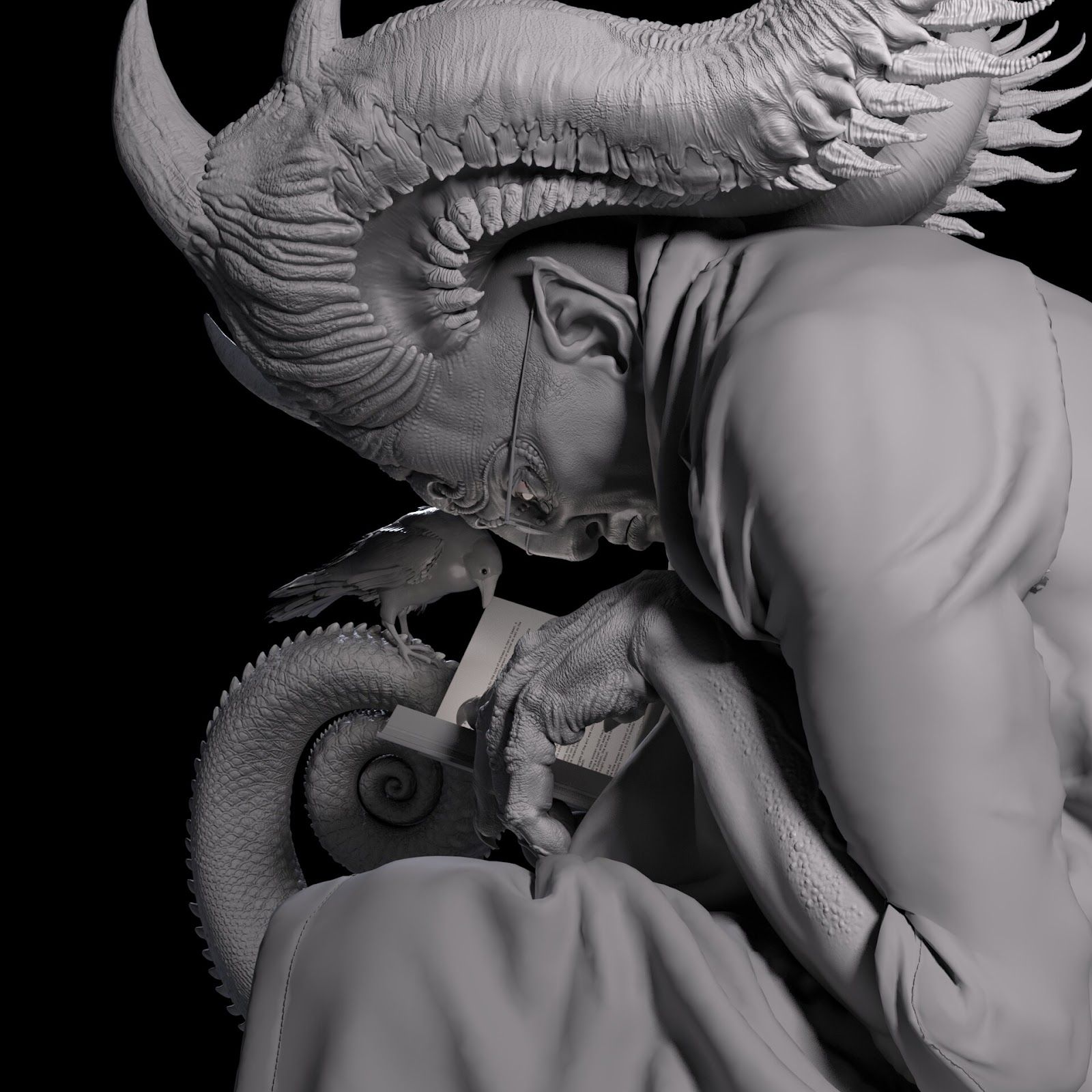
It's also a great chance to work on something you're truly passionate about and properly enjoy yourself. People always see the enthusiasm, time and effort you put into your work.
To add to that, waiting to get a job can be very tough, and personal projects have always made me feel like I'm doing something that makes me closer towards achieving that goal.
And finally, doing personal projects is a good way to stay connected to your network and feel some appreciation from people who already love your work.
One piece of advice I would give to myself is not to overdo it. I feel like I was trying to compensate for not having a job by doing more personal work and that didn't make me feel any better.
A lot of the time struggling to get a job is not your fault - there just might be no good options at the moment because of factors that are not within your control.
Take care of yourself because it'd be a shame to burn out when there's so much more cool stuff to make. The VFX industry is cool but don't forget that at the end of the day you're just making cartoons.
Kate is a 21 year old Russian born 3D artist based in New Zealand. Kate moved to NZ in 2017 to attend Yoobee Colleges and pursue a career in VFX. She have always loved doing traditional art, which prompted her to expand to 3D and digital painting. Kate just likes making beautiful pictures and can't help it.
You can reach out to Kate via ArtStation and LinkedIn.
